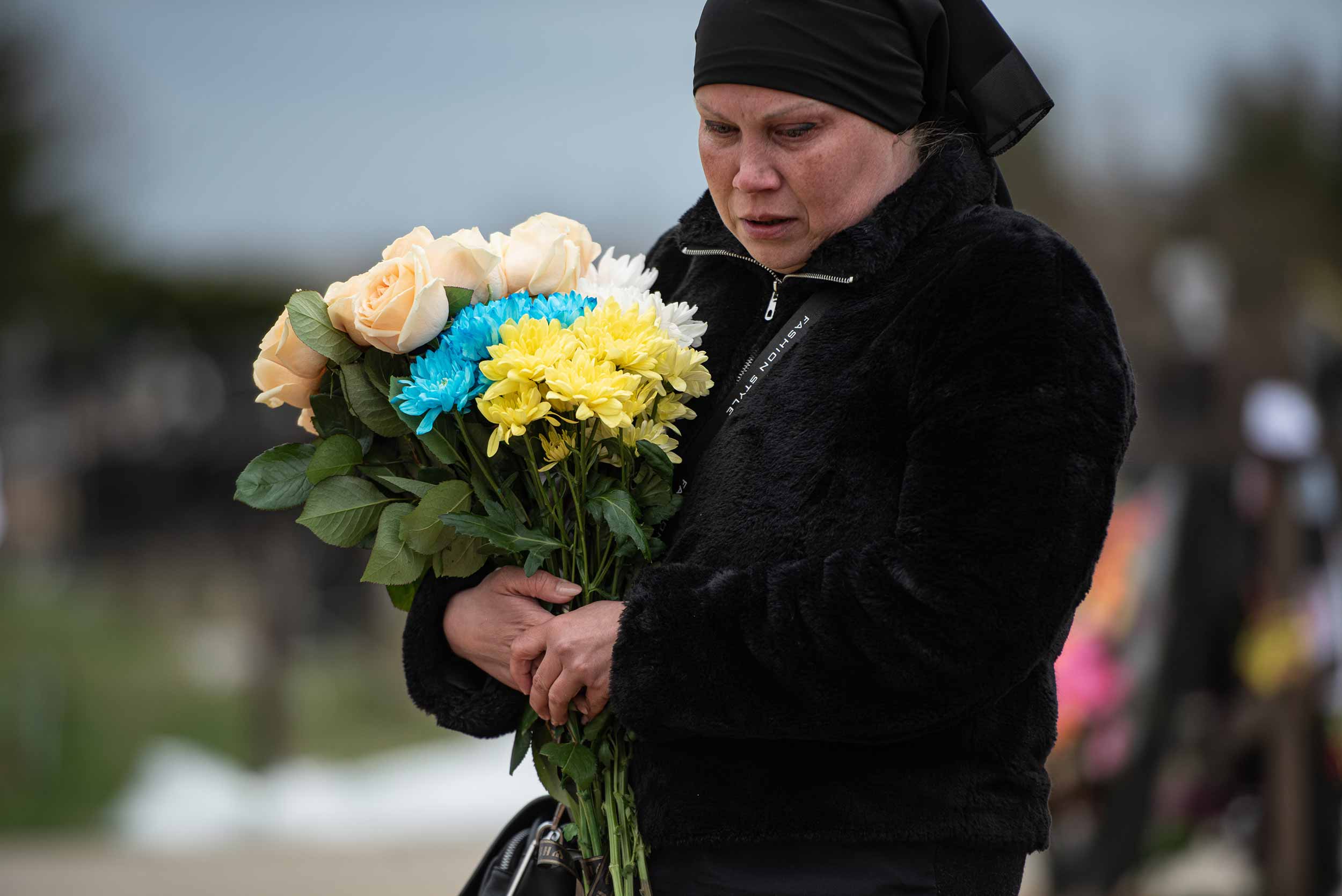Why Russia Wants its Own War Crimes Court
Processes will effectively legitimise the de facto occupation authorities while discrediting genuine efforts to see justice.
Why Russia Wants its Own War Crimes Court
Processes will effectively legitimise the de facto occupation authorities while discrediting genuine efforts to see justice.
As Kyiv lobbies for the creation of an international court to try Russia for war crimes, Moscow has decided to play a bluff card: to create its own, special tribunal purportedly documenting Ukrainian offences.
In late July, the head of the country’s federal investigating authority announced plans to create a legislative process to collect evidence on Ukraine’s alleged crimes in the occupied east of the country.
Alexander Bastrykin, who heads the Investigative Committee of Russia (SKR), said they planned to recruit Iran, Syria, Bolivia and other countries that Moscow describes as neutral to cooperate on the tribunal. Pro-Russian organisations such as the Commonwealth of Independent States and the Moscow-led Collective Security Treaty Organisation will be invited to join. Moscow will also call on the support of Eurasia’s Shanghai Cooperation Organisation and other countries in BRICS, representing the major emerging economies of Brazil, Russia, India, China and South Africa.
In a media interview, Bastrykin said that this action had been taken because Russia could not expect fair treatment in an international tribunal.
"Taking into account the position of the ‘collective West,’ which openly sponsors Ukrainian nationalism and supports the Kyiv regime, the creation of such a tribunal under the auspices of the UN in the current perspective is extremely doubtful,” he said. “The establishment of the court and its statute could be formalised by an agreement between Russia, member countries of the organisations, and the Donetsk and Luhansk People's Republics [the unrecognised pro-Russian entities in east Ukraine].”
Ukrainian lawyers and human rights defenders warn that the creation of such a structure could set a dangerous precedent as well as effectively legitimising the de facto authorities.
Russia has been trying to extend its jurisdiction over Ukraine since the 2014 invasion. This has de facto occurred in illegally annexed Crimea, but the situation is more ambiguous in the Donetsk and Luhansk regions, which Russia does not formally recognise as part of its own territory.
Instead, although the law enforcement agencies in the so-called republics are under the absolute control of the Russian Federation, a quasi-legal system has been created.

Tetyana Katrychenko, coordinator of the Media Initiative for Human Rights NGO, said that analysis of this system showed that it was clearly politically motivated. In addition, these structures had been used a testing-ground for more ambitious pseudo-judicial processes.
"The idea of creating this so-called tribunal is the consequence of impunity,” Katrychenko continued. “We can say that in this tribunal the Russians will use standards that have already been tested: falsification of evidence, convenient witnesses. They will create a process that has nothing to do with justice. We have seen examples of such processes against military personnel in recent months: the so-called courts of the occupation administrations have already sentenced three people to the death penalty.”
On June 9, the so-called DNR court found UK citizens Shaun Pinner and Andrew Hill, alongside Brahim Saadoune from Morocco, guilty of “committing actions aimed at overthrowing the constitutional order".
Oleksandr Klyuzhev, an analyst with the OPORA civil network, said that these ad hoc processes were an attempt to legitimise the de facto authorities vis a vis the international community.
"Russia intends to force the Ukrainian side to hold a dialogue about the fate of prisoners of war with representatives of the so-called republics,” he said. “Trials of foreigners are especially beneficial to them, which is why we hear threats of death sentences. The Russians' signal is very simple - to force the civilised world to negotiate with them against the background of the threat of execution of prisoners of war. This is frank blackmail… used in a wide range of issues, for example, to loosen sanctions.”
Klyuzhev said that the pseudo-legal processes were also important for domestic Russian consumption.
"Putin needs to form within Russia a clear long-term explanation of what happened, why so many dead, destroyed cities. It’s a domestic political reason for using falsified evidence, for example, that Ukraine is shelling its own cities,” he said, adding, “They systematically work to have their own version of events.”
The SKR also seems intent on intimidating the population of the newly captured territories in Ukraine. In July, Bastrykin visited occupied Kherson and demanded an increase in the number of investigators to "record and investigate the crimes of the Kyiv regime”.
This was a sign of things to come, Klyuzhev continued.
"Now Russia’s Federal Security Service (FSB) is finding more and more ‘saboteurs’ and ‘extremists’ in the occupied Kherson and Zaporizhzhia regions [and] the leaders of the occupation administrations threaten people with deportation for "extremist" views. The trips of the Russian Federation’s investigative committee to the Kherson region are a sign of preparations for a large-scale purge of those who disagree with the occupation, and therefore a very bad signal for our compatriots.”
Ukrainian human rights defenders are convinced that the SKR’s ambitious activities are also aimed at the future discrediting of genuine international justice processes.
"For every initiative to investigate war crimes, they will publish volumes of their ‘investigations’ and invest resources in promoting this evidence in Europe and the US. Through the discussion of pseudo-evidence, both the victim and the aggressor are equalised,” Klyuzhev continued.
“The Russian Federation does not need their "evidence" to be believed. It needs the civilised world, under the pressure of economic, financial and energy challenges, to find a reason to equate the aggressor and the victim.”
The best way to limit the effects of such a tribunal, human rights defenders argue, is to ensure a genuine international mechanism is created to bring those guilty of crimes against Ukraine to justice.
